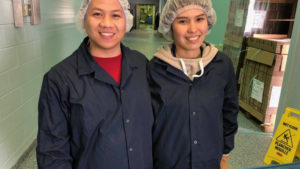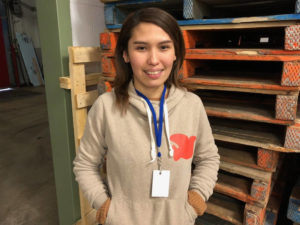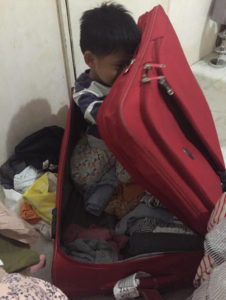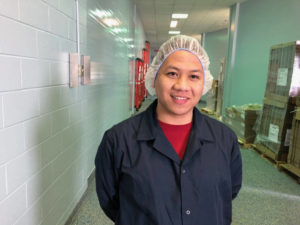‘Everyone dreams to come here’

Though Marian Eliot always wanted to make a life for herself in Canada, the 37-year-old from a small town on an island in the Philippines didn’t expect to end up with a job at a P.E.I. lobster plant.
“It never occurred to me that I’m going to be working in a fish plant, or any production company,” she said.
“It was very difficult for me coming from an office life.”

Eliot studied business in college and worked in several countries in business and hotel management before her aunt living on the Island told her about a job opportunity at Royal Star Foods in Tignish.
Every year, P.E.I. lobster plants bring in hundreds of temporary foreign workers — and new immigration rules could allow some employees to apply to become permanent Canadian residents.
“As a child my dream is really to come to Canada,” she said.
“Canada for us means greener pastures and I think it’s the same for the rest of the Filipinos.”
The most difficult part of realizing that dream for the single mom is being away from her three-year-old son Ethan.
The last time she was visiting home he tried to climb in her suitcase when she was heading back to Canada.
“I’m very sensitive when it comes to family,” she said, her voice breaking.
Even after being away from home for 15 years, it doesn’t get easier and she still misses her son and her parents who care for him.
Her paperwork has been submitted and she hopes to bring her son to Canada in 2019, along with other family members if possible.
“Any work I’m willing to do, just to bring my family here,” Eliot said.

‘I’m getting used to it’
Vicente Octavio is also from the Philippines, and he and his 25-year-old sister work at Royal Star Foods as well.
She made an official request to bring him here, and he says without that it would have taken much longer.
“For a Filipino it’s very difficult to go here in Canada, if you don’t get requested by your family here,” he said.
He graduated with a diploma in health-care services and worked at a hospital as an information clerk in the Philippines.
“In the the Philippines, my salary was $150 a month,” said Octavio, adding he makes about $2,000 in the same span at the plant.

Right now he’s working in the frozen meat section of the plant, and said at first he was tired going from an administrative job to manual labour.
“I’m getting used to it,” he said. “It’s big money, it’s no big deal.”
He said he enjoys his life in Tignish and feels accepted by the other workers in the plant and the community.
“It’s a good opportunity to work in Canada.”
‘Earn money for my family’
He’s single and doesn’t have any children but is now the one supporting his family — he’s one of five children and sends money back home to help his parents, brother and sisters.
“For now I want to earn money for my family,” Octavio said, adding he hopes to be able to help other relatives.
Octavio is waiting on an application for permanent resident status.
“I’m now on the pilot program, my hopes are to bring my family here also,” he said.
Octavio loves the Canadian winter and hopes to share it with his family.
“That’s one of my dreams to bring my mother and father here so they can experience what snow is.”
He said the lobster plant is a stepping stone to life in Canada — he hopes to continue on with his studies.
“I’m very happy that I’m here in Canada — everyone dreams to come here.”
‘We need a workforce’
The manager at Royal Star Foods said without the temporary foreign workers, the plant couldn’t run because he can’t hire enough local people.
“Living in rural P.E.I. we have a -7 population growth in the last seven to eight years, so without the temporary foreign workers we can’t run the plant,” said Francis Morrissey, manager of Royal Star Foods.
“We need a workforce.”
This year the plant will have about 60 foreign workers, mostly from the Philippines. He said he knows it’s a touchy issue, but hopes the rules change to make it easier for workers to come and go.
“We hope there’s a few changes coming to make it easier.”

He said it’s sad to know workers are so far away from their family and children and is happy with the pilot project bringing in changes to immigration rules.
“I don’t think it’s right,” he said.
“I just hope that I can see them with their families here.”


